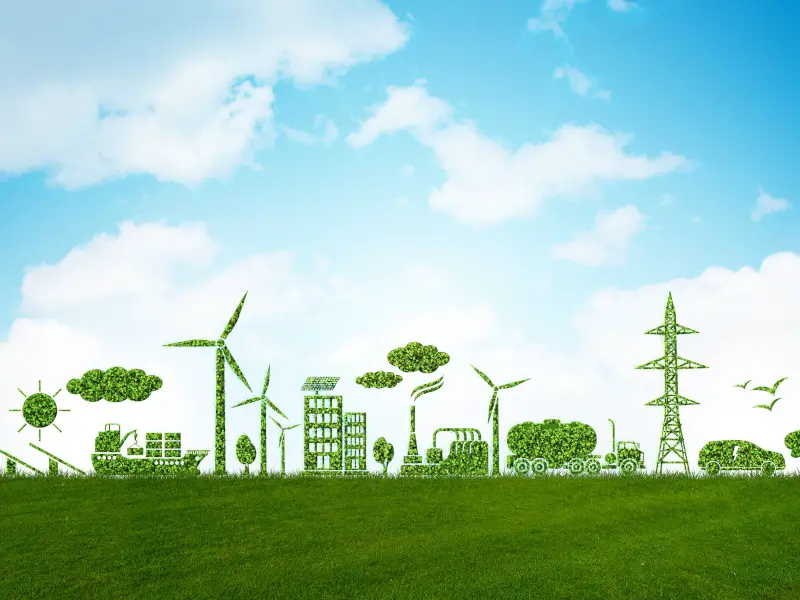As companies set ambitious sustainability targets, Alan Keogh from Cool Planet offers some practical tips on how businesses can reduce emissions right now.
Companies around the world are pledging to do their part for climate change, setting ambitious goals to reduce their carbon footprint, increasing their use of renewable energy sources and investing in green technology.
These corporate resolutions are a sign of the growing urgency to address climate change and its increasingly dire consequences.
By cutting carbon emissions and investing in green initiatives, Irish companies can set a powerful example of how businesses can lead the way in protecting our planet.
Now more than ever, governments and businesses agree that net zero is the next major industrial revolution. And like many revolutions beforehand, those that adapt can expect to thrive.
Business leaders should ask themselves how the climate crisis is going to change the fundamentals of their business. Climate breakdown isn’t just a problem for governments to fix. Increasingly consumers expect the businesses providing them with goods and services to take a stance.
Those that adapt can expect to thrive.
It is important for companies to respond to consumer demands for more sustainable products and services, and look for ways to reduce their reliance on fossil fuels and other materials that are damaging the environment.
Not only is it critical for mitigating the worst impacts of climate change, but it can also make companies more sustainable and profitable in the long term.
Here are four ways companies can lower emissions.
Electrify your heat
About 85pc of industry uses fossil fuel-powered boilers to create heat or steam. While burning fossil fuels to generate heat used to be the simplest thing to do, it is also the dirtiest and largest source of your on-site carbon emissions. Replace fossil fuel with an electric heat pump.
Heat pumps can use renewable energy from the air, water or ground but also waste energy from buildings and processes to provide you with heating and cooling. They are cheaper to run than gas boilers, produce fewer carbon emissions and can even provide you with free hot water.
Power your company with renewable energy
Make the shift away from natural gas powering production towards electricity and solar or wind. Battery storage is a great way for businesses to store excess energy from solar panels and other renewable energy sources. By storing energy in batteries, businesses can use it when the sun isn’t shining or the wind isn’t blowing.
Reinvent your process
Companies like Impossible Foods are rethinking the hamburger – making it from soya instead of meat. Can you collect the CO₂ out of your combustion gas (using cool stuff like cryogenics) and lock it into your product (we’re seeing examples where CO₂ is being forced into supplementary cementitious materials in concrete).
Use innovative tools and technologies to reimagine your processes to reduce your emissions. This will future-proof your business and increase your sustainability.
Build a resilient, diverse, sustainable supply chain
According to research, 75pc of your carbon emissions come from your value chain: your products, your suppliers and your distribution. Getting a real-time view of these emissions is a good place to start. See what’s working and what needs improvement to make significant progress in meeting your decarbonisation targets.
In addition to reducing their emissions, many companies are committing to increasing their transparency by reporting on their carbon footprint and making their sustainability goals public. This will enable stakeholders to hold them accountable and ensure they are meeting their sustainability objectives.
By Alan Keogh
Alan Keogh. Image: Alan Keogh
Alan Keogh is the group CEO of CoolPlanet, a global leader in industrial-scale decarbonisation. Prior to joining CoolPlanet, he headed up the technical activities at Bord Gáis and Dalkia. He has more than 20 years of experience working on both the technical and commercial sides of the energy and renewables sector.
10 things you need to know direct to your inbox every weekday. Sign up for the Daily Brief, Silicon Republic’s digest of essential sci-tech news.
Source link











Leave a Reply